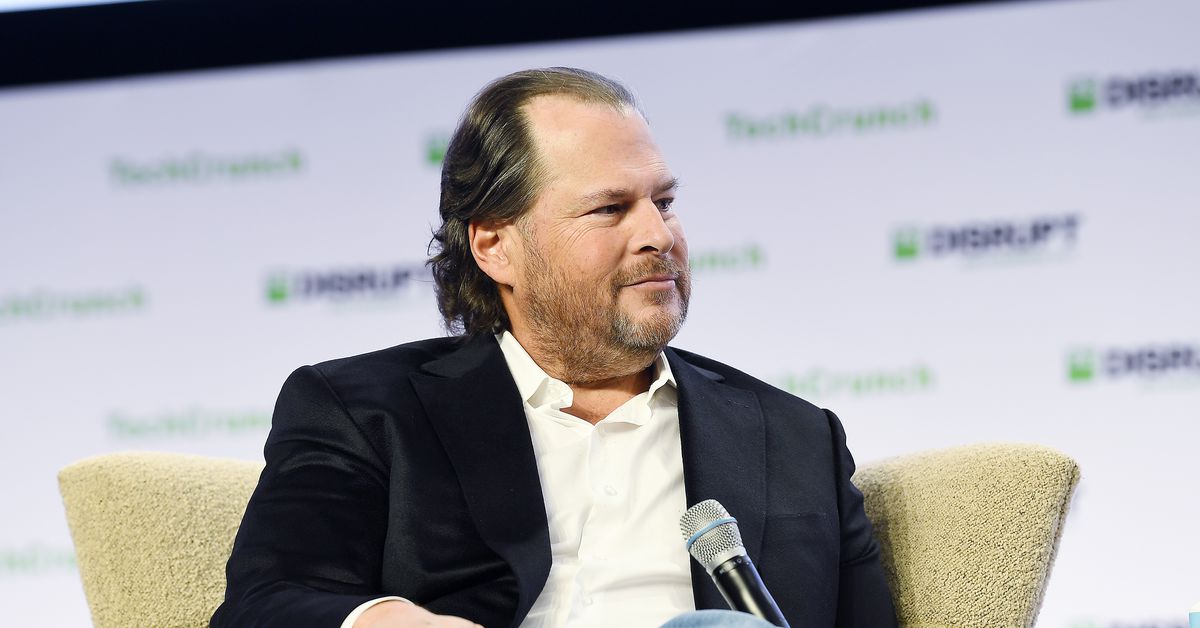
Salesforce CEO Marc Benioff, an outspoken tech industry figure who is apparently not afraid to criticize other business leaders, spent all week bashing Facebook over the company’s refusal to moderate certain content on its platform, like political ads that contain lies. He’s on tour promoting his book, Trailblazer, and is understandably generating headlines and free promotion as a result. But one peculiar call to action that Benioff voiced two days ago on Twitter, in favor of abolishing the oft-misunderstood Section 230, may not have been all that well thought out.
That’s because, according to BuzzFeed News, Salesforce lawyers are using Section 230 as a defense in not one, but seven lawsuits involving the website Backpage, to which Salesforce reportedly sold its cloud-based sales management software and other services.
Section 230 of the Communications Decency Act is the law that keeps tech platforms from being held accountable for the content posted by their users, and it’s that same law Salesforce lawyers think will protect it from having provided technical assistance to a company that was shut down by the feds for breaking numerous money laundering and prostitution laws.
Facebook is a publisher. They need to be held accountable for propaganda on their platform. We must have standards & practices decided by law. FB is the new cigarettes—it’s addictive, bad for us, & our kids are being drawn in. We need to abolish section 230 Indemnifying them. pic.twitter.com/OHVDVVd1jt
— Marc Benioff (@Benioff) October 16, 2019
Techdirt founder Mike Masnick first brought attention to Salesforce using Section 230 as a legal defense when he called out the apparent hypocrisy on Twitter. Techdirt focuses on the intersection of technology, policy, and law with a focus on intellectual property, patents, and copyright, so it’s no surprise Masnick spotted it. The following morning, Masnick posted more details and personal thoughts on his website.
Dude. Your company is using Section 230 to defend yourself in a lawsuit as we speak. I think your very expensive lawyers just had a heart attack. https://t.co/J9EYK2XTez
— Mike Masnick (@mmasnick) October 17, 2019
Backpage was a classified advertising site found by the federal government to be a haven for thinly veiled sex work advertisements. Its co-founder and CEO, Carl Ferrer, pleaded guilty to money laundering and aiding prostitution, with part of his plea deal requiring him to help keep the site offline for good after the government seized it in April of last year.
Salesforce, having aided Backpage’s business, may be found liable in the various lawsuits. But the company’s lawyers have cited Section 230 in a legal filing on Wednesday and have been using for weeks now as a defense.
“Salesforce objects to the Requests on the ground that it is entitled to federal immunity from suit under section 230 of the Communications Decency Act, 47 U.S.C. § 230, with respect to the claims in this action,” Salesforce’s lawyers wrote in a filing for one of the seven case, this one out of Harris County, Texas. According to lead trial lawyer for the plaintiffs Annie McAdams, who spoke with BuzzFeed, Salesforce entered into a contract with Backpage at the same time state attorneys general were going after the site.
Section 230 is currently at the heart of a rather vicious partisan debate over the extent to which platform-owning tech companies like Facebook and Twitter should moderate their platforms, with Republican politicians saying Silicon Valley has a liberal bias and unfairly punishes conservatives. Some of those lawmakers, Sen. Josh Hawley (R-MO), have called for changes to Section 230 to force tech companies like Facebook to be politically neutral.
Salesforce didn’t immediately respond to a request for comment.
https://www.theverge.com/2019/10/18/20921627/salesforce-ceo-marc-benioff-section-230-backpage-defense-facebook-criticism

